7 Effective Squat Alternatives for Sore Knees
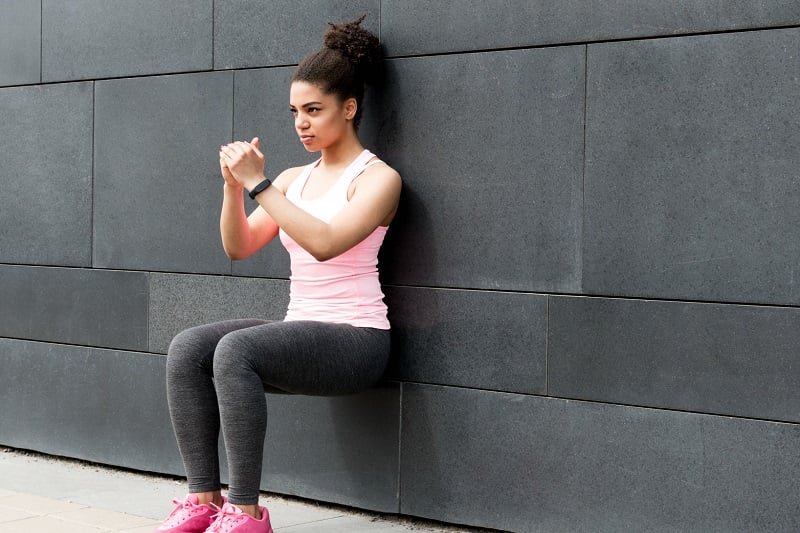
You want to train your lower body but your knees are sore or aching? We just might have some squat alternatives for folks with sore knees you can use to effectively work out your lower body and create the sexy muscle tone you desire.
What Causes Knee Pain and How to Help Remedy
Why do our knees get sore, and what can we do to prevent this from happening (or maybe start to rehab that pain if you’re already there)? It turns out that knee pain can come from a variety of sources.
It could be due to something as simple as too much sitting, shortened hamstrings, or tight hips. Or, your sore knees could be because of an injury or even just straightforward aging. Whatever the cause, or combination of causes, there are some easy things you can do to help prevent or reduce that pain.
Walking backwards—this may sound crazy, but walking backwards is a fantastic way to strengthen and bulletproof your knees! It may be easiest (and safest) to do this on a treadmill. Grab the rails and face backwards. Start at a very slow pace like 1.0 or 2.0 mph. Always hold onto the rails for balance! Once you get stronger, try not turning the treadmill on and moving the belt backwards with your feet. Alternatively, you can also try walking down the stairs backwards (while holding onto the railing, of course!).
Pro tip: hook your hips up to a sled and drag it backwards for optimal knee strengthening.
Foot lift—this one is so simple, it’s almost silly… just stand near a wall with your feet about a foot away from the wall. Let your back, butt, and hands touch the wall. Keep your legs straight while leaning back. Then lift your toes off the ground, moving your weight onto your heels. Hold this position for a moment and then bring your toes back to the floor. Repeat this movement 20 times.
Try These 7 Squat Alternatives
You might have sore knees, but no worries. You can still get a great lower body workout by incorporating some of these squat alternatives into your routine.
1. Wall Squats

These are a great way to take the pressure of your knee joints and yet still get most of the benefits of a regular squat. Start by standing against the wall with your feet about 12 inches out in front of you (or the length of your thighs, so your knees are over your ankles). Your back and hips should be touching the wall. Next, slowly slide your hips down the wall while bending at the knees until your thighs are parallel with the ground. Hold this squat position for a count of ten and then slide back up the wall to complete one repetition.
RELATED: Collagen Doesn’t Work (Unless…)
2. Romanian Deadlift
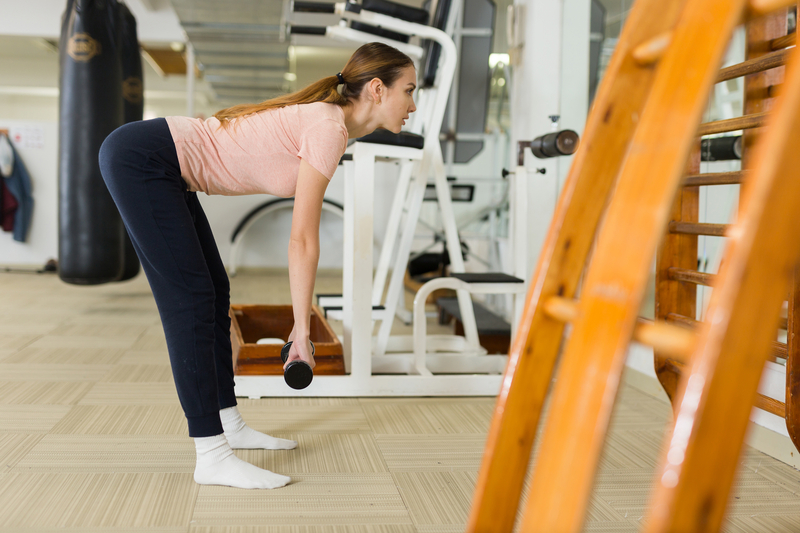
Start with your feet about hip-width apart. You can do this exercise banded (simply step on a band and grasp the ends with your hands), with a barbell, dumbbells, or kettlebells (single or one in each hand). Stand up straight and grasp the weight. Put a slight bend in your knees so your legs are not stiff. Keeping your head up and back straight, hinge back at the hips (kick your hips back) and allow the weight to bring your torso toward the floor, with your arms straight. Feel a good stretch through the hamstrings and then push your hips forward as you straighten to the standing position again.
3. Glute Thrust
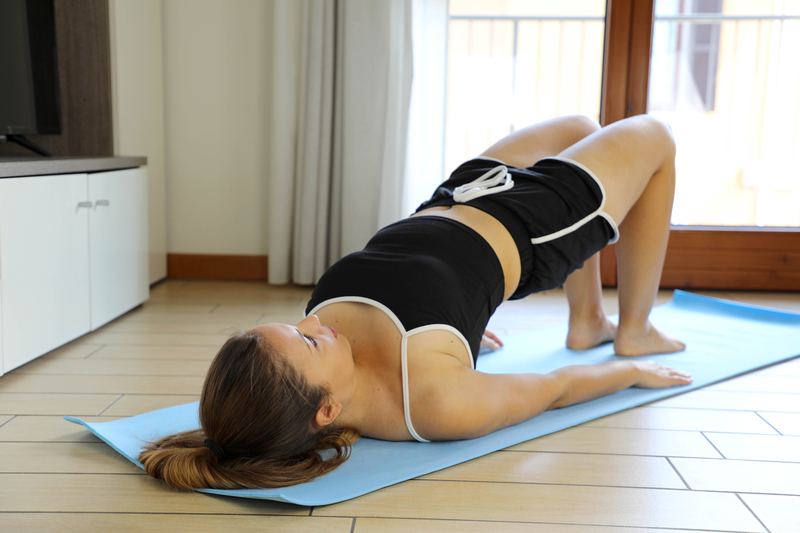
Also called “glute bridges,” these squat alternatives can be done with or without weight. Start by lying on your back with your hands next to your hips. Bend your knees and scoot your feet toward your hips until they are flat on the floor. Next, lift your hips up off the floor, bringing them as high as you can.
Squeeze the glutes at the top of this movement and hold for a few moments before returning to the starting position. You can add weight to this movement by using a resistance band and wrapping it under your hands and over your hips, or place your back on the side of a bench and place a barbell or a dumbbell across your hips, balancing with your hands. Lift and lower the hips as normal.
4. Leg Curls
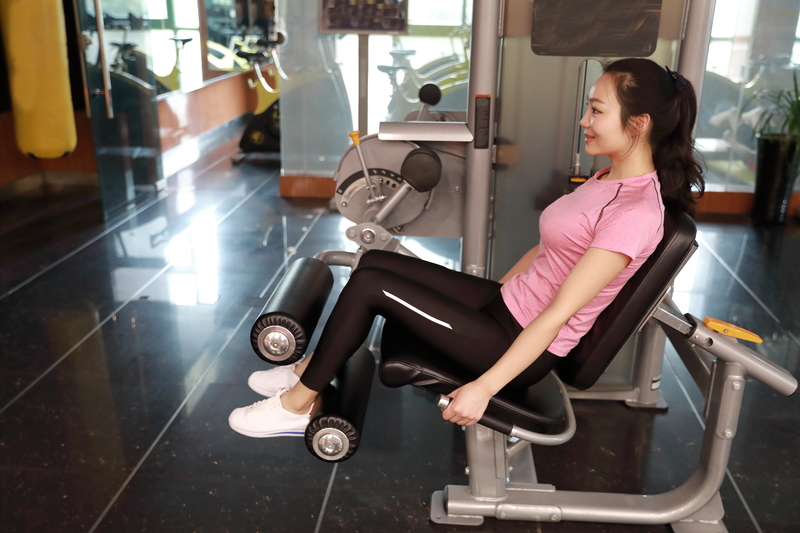
You can do these on a machine and you’ll typically see several varieties of equipment. There is the seated leg curl, the lying leg curl, and the standing single leg curl. All of these will have you hitting the hamstrings without putting pressure on your sore knees. If using the lying leg curl, lie face down on the machine and hook your ankles under the pad. Bend at the knees while keeping your hips on the pad (don’t allow your butt and hips to lift up). Squeeze your hamstrings and glutes to raise the pad and then slowly lower back to the start.
LIMITED TIME OFFER: Get Ageless Turmeric, Our Highly-Bioavailable Turmeric & Ginger Supplement, As Low As $14
5. Walking Lunges
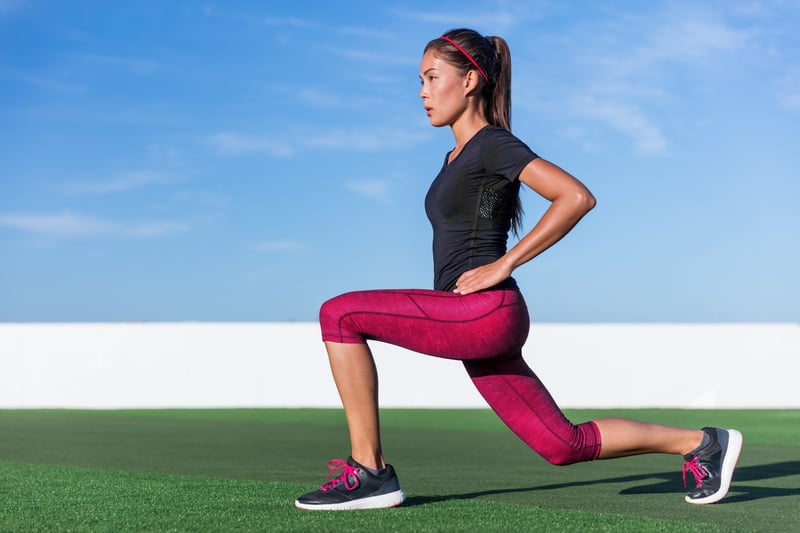
Always a great movement, these squat alternatives will sculpt your entire lower body and even help chisel your core. Start by standing with your hands clasped in front of you at chest level, feet about hip-width apart. Take a giant step forward with your right leg and bend your knee until your thigh is about parallel with the ground. (Note: try going even further forward, bringing your knee past your toes, as long as your knee aligns with the position of your foot and toes). Push through your heel to propel yourself forward and back up to the standing position. Repeat on the opposite side.
6. Leg Press
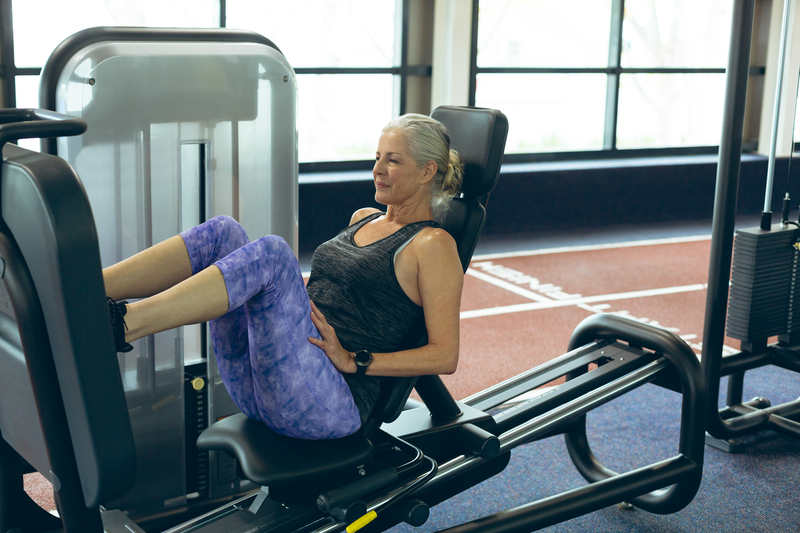
This piece of equipment may feel better than a squat. Play it by ear and see what you think. The different angle can mean more use of the glute, hamstring, and thigh muscles and less pressure on the knees. Also try single leg presses if that is an option with your particular equipment. This allows you to really focus on the muscles you’re working without straining sore knees.
If on a single leg press, place your feet on the pad with your knees bent. Release the safety, and push up through your heels to straighten your leg. Once straight, lower the weight slowly until your knee is fully bent and repeat. Complete all repetitions on the right side before moving to the left. (This can also be done with both legs at the same time). Perform the movement slowly, really focusing on the leg muscles as you go through the movements.
7. Deep Squats
These squat alternatives are typically seen in yoga routines or as part of a flexibility routine. Start by standing with your feet wider than hip-width apart with your feet angled outward. Drop your hips down until you are fully “sitting” between your knees. If you want to, put your palms in prayer position and use your elbows to gently push your knees out to the sides, increasing the range of your stretch.



 US Doctor: "Eating This Every Day Can Snap You Into Ketosis"
US Doctor: "Eating This Every Day Can Snap You Into Ketosis"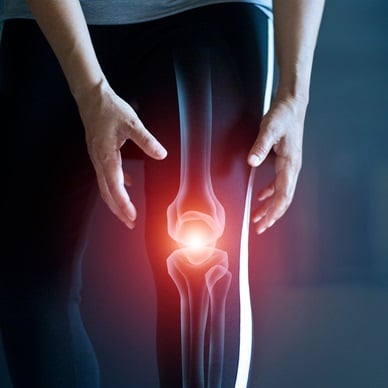 3 Key Nutrients to Help Lubricate Your "Tin Man" Joints
3 Key Nutrients to Help Lubricate Your "Tin Man" Joints AVOID Plant-Based Protein Powders (unless...)
AVOID Plant-Based Protein Powders (unless...)

